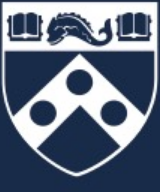Introduction to Psychoanalysis: History, Theory, Practice
Psychoanalysis is not only a powerful therapeutic modality for numerous psychological stresses and disorders, it’s also a comprehensive way of looking at the world: a way of understanding 1) the roles that emotions play in all aspects of our lives; 2) the enormous influence of childhood experiences and early development on our later friendships, romantic relationships, sexual experiences, and other personal, familial, cultural, and professional bonds; and 3) the rich and complex meanings of our social and aesthetic experiences (e.g., going to college, playing a sport, reading a book, taking a vacation, having a baby or a dog, creating a company or a garden, etc.). The theory and practice of psychoanalysis, from Sigmund Freud to the present day, is based fundamentally on the importance of unconscious processes and the complex ways in which those processes affect our lived experience: in childhood development and family relationships; in our wishes, dreams, and fantasies; in our experiences of work, play, love, sex, trauma, and loss; and in our creative, spiritual, and political strivings. Because the course aims to link the academic and the clinical, it will be team-taught by an academic faculty member and a practicing psychoanalyst.
The course will introduce students to the broad and ever-expanding spectrum of psychoanalytic ideas and techniques, through reading and discussion of major works by some of its most influential figures, such as Freud, Sándor Ferenczi, Melanie Klein, Heinz Kohut, Erik Erikson, D. W. Winnicott, Jacques Lacan, Wilfred Bion, John Bowlby, Stephen Mitchell, Jessica Benjamin, Nancy Chodorow, and Christopher Bollas. We will also read some literary, historical, philosophical, and anthropological works that have special relevance to the psychoanalytic exploration of the human condition. Indeed, the course will demonstrate how effective psychoanalytic ideas are in bridging a wide variety of disciplines in the humanities, the social sciences, and the natural sciences—including recent developments in neuropsychoanalysis. No prior knowledge of psychoanalysis is required, and interested students from all disciplines are warmly welcomed. The reading assignment for the second class meeting will be Alison Bechdel’s graphic memoir, Are You My Mother?, if you want to get a head-start over Summer Break. Please note: in addition to the other requirements it satisfies, this course may also be counted toward completion of the Psychoanalytic Studies minor (https://web.sas.upenn.edu/psys/). three short essays, regular quizzes, weekly in-class group exercises (NO midterm or final exam).
